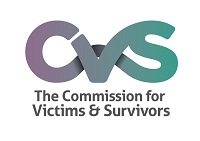×
Standards and Criteria – Valued

Standard: VALUED
Victims can easily provide feedback on the service they receive and they are confident their opinion matters
- Victims are actively encouraged to provide feedback about the service they receive
- Different methods for providing feedback are promoted to remove barriers to victims providing it
- Feedback methods provide information about the victim’s experience of the service to ascertain: • Whether the support met their needs •Their experience of service personnel at the different service contact points •Whether they felt treated with empathy and respect •Suggestions for improvement
- Feedback is reviewed regularly at a senior level and actions taken where needed to improve the service
- Victims know how they can make a complaint about the service
- Complaints are consistently handled sensitively, effectively and promptly by appropriate members of staff and there is clear communication with the complainant setting expectations of the process
Victims can be confident that service personnel they come into contact with are competent in their role
- The skills, specific knowledge and tasks required by those undertaking contact with victims are clearly specified and are appropriate for the different roles
- Robust systems are in place to check that all service personnel who have contact with victims can demonstrate the necessary attitudes, skills and knowledge appropriate to carry out their role before they work independently with victims
- Practitioners are able to call an appropriately qualified person for prompt guidance if needed
- Those providing case work are required to participate in regular supervision and there is evidence that this requirement is being met
Victims are informed about their rights in the criminal justice system
- Practitioners are aware of the rights of victims and what they are entitled to and: •Victims are informed about their rights as victims under the code of practice and/or witness charter •Victims involved in a trial are informed of their right to make a Victim Personal Statement if they have not done so already.
- Potentially eligible victims are informed of Criminal Injuries Compensation and how to apply
- Victims are informed about their rights in the criminal justice system. Practitioners are aware of the rights of victims and what they are entitled to and: • Victims are informed about their rights as victims under the code of practice and/or witness charter • Victims involved in a trial are informed of their right to make a Victim Personal Statement if they have not done so already. Potentially eligible victims are informed of Criminal Injuries Compensation and how to apply. Support is provided to help victims make complaints about criminal justice agencies where they wish to do so
Victims are treated with empathy and respect and the service is welcoming to all
- Audit observations / interviews and service user feedback demonstrate victims are treated with empathy and respect
- Hard to reach / engage service users are identified and action taken to promote the service to them
- Equality, diversity and inclusion are taken seriously and any attitudes or institutional or overt prejudice, which could affect service provision, are addressed.
Victims know about the records made about them and do not have to repeat their story
- Records of all contact with victims are promptly made, and any records of off-site support are uploaded within 48 hours
- What is recorded is sufficient, relevant and appropriate
- Victims are informed that records of their support are created about them and told who has access to them
- Records are available to all relevant service personnel, and used so victims do not have to repeat their story or be asked the same questions










